October 2023 - November 2024
Curated and hosted by author, Victoria Bennett (All My Wild Mothers), the Wild Women Writers’ Salons offer a welcoming and inspiring space for authors of memoirs and creative non-fiction to take a deep-dive into their writing journeys.
Whether you're a published or aspiring writer, an activist, or simply curious, this salon is for you. Join us online to connect with like-minded individuals, engage in thought-provoking discussions, and be inspired by the wild women writers who are shaping the literary landscape.
The salons will run on the last Thursday of every month. In order to increase access for authors and audience, these will include some day (1 - 2.30pm BST/GMT) and some evening events (7 - 8.30pm BST/GMT), all the way until November 2024. All events are recorded and a link will be available after the salon to ticket holders.
Here’s a sneak peek of what you can expect:
Dive deep into the world of words.
Hear authors share from their works.
Get a behind-the-scenes look at the creative process.
Real talk about publishing highs and lows.
Engage in some heart-to-heart during the Q&A session.
Each salon will feature three or more amazing guest women writers from across the globe -- and what a fantastic line-up of wild women writers we have for you!
To make sure the salons are affordable, we've made salon tickets available as a Pay What You Can donation. As Wild Women Press is unfunded and does not receive sponsorship, this is being made possible through the generosity of all those involved, contributing their time and creativity to make it happen. The more you are able to donate for your ticket, the more we can pay and value the people who make the salons possible - from the authors to those working behind the scenes. Please help spread the joy and donate as generously as you can.
The newsletter is free to subscribe BUT upgrading to paid subscription (£6 per month/£60 annual) helps support the hours and hours of work it takes to make the salons happen. In return, you get access to monthly exclusive extras, including behind-the-scenes interviews, writing tips, prompts, links to salon recordings and some extra lovely surprises along the way.
If you would like a different way to support the Wild Women Writers' Salons, you can also 'Buy Me A Coffee'. Your coffees go towards helping support the work it takes to keep Wild Women Press running.
Remember, your ticket donations, paid subscriptions, and 'coffees' enable us to keep the salons going, and value and pay the amazing people involved.
To access recordings of previous salons, subscribe to the Wild Women Writers' Salon newsletter and choose 'paid subscriber'.
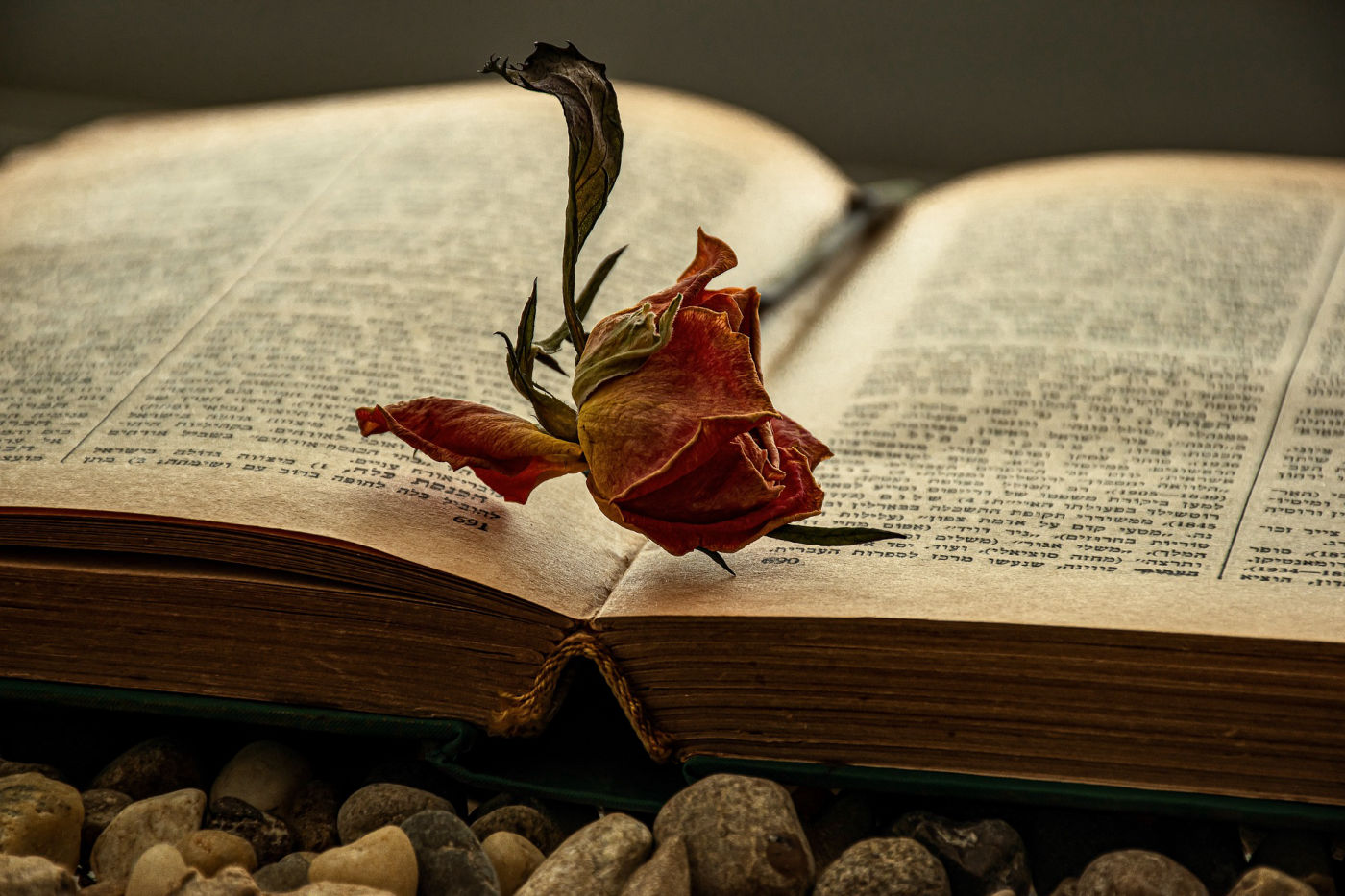
Salon 7 - An Unexpected Joy -- a deep dive into grief, nature, and the seeds of radical hope. With Salon host, Victoria Bennett (All My Wild Mothers) and guest authors Freya Bromley (The Tidal Year), Liz Jensen (Your Wild and Precious Life), and Sophie Pierce (The Green Hill).
Salon 6 - Entwined Narratives -- a Deep dive into identity, belonging, and the interplay of writing and art in creative practice. With Salon host, Victoria Bennett (All My Wild Mothers) and guest authors Sarah Thomas (The Raven’s Nest), Samantha Clark (The Clearing), Amanda Thomson (Belonging), and Joanna Wolfarth (Milk)
Salon 5 - Salt in our Blood -- a deep dive into the ocean, exploring connection, creativity and climate change. With Salon host, Victoria Bennett (All My Wild Mothers) and guest authors Easkey Britton (Ebb & Flow: Connect with the Patterns and Power of Water), Hannah Stowe (Move Like Water: A Story of the Sea and Its Creatures ) and Lisa Woollett (Lost to the Sea: A Journey Round the Edges of Britain and Ireland
Salon 4 - A Wild and Necessary Silence -- deep dive into the creativity of solitude from pilgrimage to hermitage, exploring the relationship between silence, solitude and the creative path. With Salon host, Victoria Bennett (All My Wild Mothers), in conversation with guest authors Gail Simmons (Between the Chalk and the Sea: a journey on foot into the past), Jade Angeles Fitton (Hermit: a memoir of finding freedom in a wild place ) and Phoebe Smith (Wayfarer: Love, loss and life on Britain’s ancient paths).
Salon 3 - Our Vital Capacity -- a deep dive into writing memoir as a creative act of reclamation and empowerment after trauma. With Join host, Victoria Bennett (All My Wild Mothers), in conversation with guest authors Lily Dunn (The Sins of My Father: A Daughter, a Cult, a Wild Unravelling), Rebecca Fogg (Beautiful Trauma: A Journey of Discovery in Science and Healing) and Dr Liz O’Riordan (Under the Knife: Life Lessons from the Operating Theatre).
Salon 2 - Earth Matters -- a deep dive into words of connection and care in a time of crisis. With salon host, Victoria Bennett (All My Wild Mothers), in conversation with authors Katie Holten (The Language of Trees), Marchelle Farrell (Uprooting) and Kerri ni Dochartaigh (Cacophony of Bone).
Salon 1 -- Rural Landscapes, Rural Lives -- a deep dive into the intimate connecteds between people and the landscapes they call home. With Salon host Victoria Bennett (All My Wild Mothers), in conversation with authors Rebecca Smith (Rural), Catrina Davies (Once Upon A Raven's Nest) and Nicola Chester (On Gallows Down).

Liz Jensen’s critically acclaimed work includes black comedy, science fiction, satire, family drama, historical fantasy, psychological suspense, and, most recently, memoir. She is the author of eight novels that span black comedy, science fiction, satire, family drama, historical fantasy, psychological suspense and eco-thrillers. Her work has been short-listed for the Guardian Fiction Award, nominated for the Women’s Fiction prize three times, adapted for theatre and radio, and translated into twenty languages. A founder member of Extinction Rebellion’s Writers Rebel, a literary movement using words and actions to highlight the climate and ecological emergency, she launched The Rebel Library in 2023, a resource for readers of climate and ecological literature in all genres.
Her debut memoir, Your Wild And Precious Life: On Grief, Hope and Rebellion, was published 2024 and is a reflection on personal and ecological grief and finding resilience after the tragic sudden death of her son Raphael in 2020. A zoologist, conservationist and ecological activist, Raphael was twenty-five when he collapsed and died unexpectedly. Liz fell apart. As she grieved, forest fires raged, coral reefs deteriorated, CO2 emissions rose, and fossil fuels burned. Your Wild and Precious Life is the story of how a mother rebuilt herself, reoriented her life and rediscovered the enchantment of the living world. Set against the backdrop of climate and ecological catastrophe, it’s an argument for agency, legacy and the wild possibility of hope after devastation.

Freya Bromley is a writer living in London. Her work explores love, loss and healing through nature and she’s written for publications including Lonely Planet, Condé Nast Traveller, Financial Times and National Geographic Traveller. Freya’s first book, The Tidal Year, was published by Coronet in 2023 and was shortlisted for the Nero Book Awards.
Four years on from the death of her brother, and still seeking some way to fill the space his death leaves behind, Freya decides to swim every tidal pool in Britain in a year with her friend Miri. As Freya travels further from her home in London, she finds herself moving closer to memories of her brother. With every swim and every stranger they meet in the water, the challenge becomes more than just a way to explore the coast — a journey of self-discovery.
The Tidal Year is a true story about the healing power of wild swimming and the space it creates for reflection, rewilding, and hope. An exploration of grief in the modern age, it's also a tale of loss, love, female rage and sisterhood.

Sophie Pierce is a writer based on the edge of Dartmoor in Devon, where she explores ideas around our relationship with the natural world. For many years, she was a radio and TV reporter for BBC South West and wrote national newspaper features, including the Daily Telegraph and The Guardian. The Green Hill: Letters to a Son is Sophie’s debut memoir.
In 2017, Sophie Pierce’s life changed forever when her 20-year-old son Felix died suddenly and unexpectedly. Thrown into a new world of loss, she had to find a way to keep on living. In a series of letters to Felix – composed during walks and swims taken close to his grave on The Green Hill in Devon– Sophie learns how to live in the landscape of sudden loss, navigating the weather and tides of grief.
The Green Hill: Letters to a Son celebrates the natural landscape and its role in our lives and relationships and explores how we consider our own mortality.

Victoria Bennett is a disabled writer, carer and mother. A firm believer in everyone’s right to write their own story, she has dedicated much of her working life to nurturing spaces where people can do just that, founding Wild Women Press in 1999. When not juggling writing, care and chronic illness, she can be found in Orkney, close to where the wild things grow, tending her new apothecary garden.
Her debut memoir, All My Wild Mothers: motherhood, loss, and an apothecary garden, was published by Two Roads in 2023. It was long-listed for the Nan Shepherd Prize, won the New Writing North Northern Debut Award, and is currently longlisted for the Lakeland Book of the Year, and was awarded the Silver Award for Memoir in the Nautilus Awards 2024.
At seven months pregnant, Victoria learns that her sister has died in a canoeing accident. Five years later, and struggling with the demands of motherhood, grief and full-time care, Victoria and her family move to a new social housing estate in rural Cumbria. Here, in the rubble of a former industrial site, she and her young son begin to grow a wild apothecary garden: daisy, for resilience; dandelion, for strength against adversity; sow thistle, to lift melancholy; and borage, to bring hope in dark and difficult times.
All My Wild Mothers is an intimate memoir of motherhood, grief and care. Beautifully written, it offers a handbook on survival and a testimony to the radical hope that can grow in even the most broken places.

Sarah Thomas is a writer and documentary filmmaker with a PhD in Interdisciplinary Studies. She is committed to work that explores our entanglements with the living world. Her films have been screened internationally. She has been a regular contributor to Dark Mountain journal, and her writing has also appeared in the Guardian and the anthology Women On Nature edited by Katharine Norbury. In 2020, she was nominated for the Arts Foundation Environmental Writing Award. She was longlisted for the inaugural Nan Shepherd Prize and shortlisted for the 2021 Fitzcarraldo Essay Prize, and was awarded the Silver award in the Nautilus Book Awards 2023.
Her debut memoir, The Raven’s Nest: an Icelandic Journey Through Light and Darkness, is a profoundly moving meditation on place, identity and how we might live in an era of environmental disruption — a personal account of the breakdown of her marriage, it finds inspiration in the landscape of Iceland, the experience of living in a different environment and within a language, and in the artistry of a raven’s nest: a home which persists through breaking and reweaving – over and over.

Samantha Clark is a visual artist, writer and mentor based in the Orkney islands, and working internationally. Shaped by Orkney’s dynamic natural environment of wind, sky and particularly water, her recent work invites us to notice how water permeates everything as we inhabit a liquid reality that interpenetrates our own bodies and minds.
Originally trained as a tapestry weaver, Sam’s practice has evolved over thirty years through writing, drawing, installation, video and permanent works in the public realm, with painting as her primary current focus. She has an MA in Environmental Philosophy (UCLAN, 2011) and a PhD in Creative Writing (St Andrew’s University, 2017). In 2023, she received the inaugural RSA MacRobert Trust Art Award for Painting.
Her debut memoir, The Clearing: A Memoir of Art, Family and Mental Health, concerns the ‘spaces between’ and what may be learned in them. As she clears the family home after the death of both her parents, the memories held there prompt reflections on her family’s flawed strategies for coping with her mother’s mental illness, the isolation of her father in caring for her, and how these relationships shifted as her parents aged. Threaded through the narrative are insights drawn from classical and scientific ways of understanding empty space, like the ‘ether’ and dark matter, and from the calm, contemplative space that art offers us.

Amanda Thomson is a visual artist, writer and lecturer at the Glasgow School of Art. Originally trained as a printmaker, her interdisciplinary work is often about notions of home, movements, migrations, landscapes, the natural world, and how places come to be made. She has exhibited nationally and internationally, and her writing has appeared in The Willowherb Review, Gutter and the anthologies Antlers of Water, Writing on the Nature and Environment of Scotland, edited by Kathleen Jamie, and The Wild Isles: An Anthology of the Best British and Irish nature writing edited by Patrick Barkham. In 2013, she completed her doctorate in Interdisciplinary Arts Practice. Her practice-led thesis considered the ways in which we came to know the place and was rooted in Abernethy Forest in Strathspey and the forests of Morayshire, particularly Culbin.
Reflecting on family, identity, and nature, Belonging: Natural Histories of Place, Identity and Home is a personal memoir about what it means to have and make a home. It is also a love letter to nature, especially the northern landscapes of Scotland and the Scots pinewoods of Abernethy. A book about how we are held in thrall to elements of our past, it speaks to the importance of attention and reflection and will encourage us all to look, observe, and ask questions of ourselves. Beautifully written and featuring Amanda Thomson’s artwork and photography throughout, it explores how place, language and family shape us and make us who we are.

Joanna Wolfarth is a specialist in Southeast Asian cultural history, with a specific focus on Cambodia. She holds a Ph.D. from the University of Leeds in History of Art and is an art historian, lecturer, and writer. She currently teaches art history at The Open University and was previously a Visiting Lecturer in Southeast Asian Art History at SOAS, University of London.
Her debut memoir, Milk: An Intimate History of Breastfeeding, uses the arc of her own experience to take us on an intimate journey of discovery beyond mother and baby, asking how the world views caregivers, their bodies, their labour and their communal bonds. By bringing together art, social histories, philosophy, folk wisdom and contemporary interviews with women from across the world, Milk reveals how infant feeding has been represented and repressed, celebrated and censured.

Easkey Britton is the first Irish woman to be nominated for the Global WSL Big Wave Awards but there’s more to Easkey than surfing. A scientist, academic and social activist with a PhD in Environment and Society, her work is deeply influenced by the ocean and the lessons learned pioneering women’s big-wave surfing in Ireland and the sport of surfing with women in Iran, featured in the award-winning documentary film, “Into the Sea”. Passionate about facilitating creative & collaborative processes, she founded Like Water, a platform to explore innovative ways to reconnect with who we are, our environment and each other through water.
Easkey draws on the sea as an active metaphor to dive deep into the power of presence and embodiment of natural cycles, delivering international summits and global leadership programmes specialising in experiential learning, nature connection, immersive embodiment practices, community engagement and social impact, including the annual Wavemaker retreat in Portugal and Move Like Water retreat for women.
She is the author of several books on our relationship with water, including ‘50 Things to do by the Sea’, ‘Saltwater in the Blood’, and most recently Ebb and Flow: Connect with the patterns and power of water -- an exploration of water’s power to heal us, inspire us and offer us spiritual meaning. This is a feminist reimagining of the meaning of power through the lens of water. Easkey offers a range of wellness practices to encourage the reader to connect with water as healer, restoring a relationship of care.

Hannah Stowe is an artist, writer, sailor and scientist. Born and raised on the Welsh coast in a ramshackle cottage next to the sea, she spent her formative years exploring a landscape and seascape that blur into one another on a peninsula surrounded on three sides by the sea.
She has worked as a sailor and studied to be a marine ecologist, and now combines art and science, exploration and adventure together with the spirit of the Renaissance.
Through her work, she wants to bring the world’s oceans to you to hold in your hands and connect with all their powerful majesty and subtle fragility.
Move Like Water: My Story of the Sea is an inspiring, heartfelt hymn to the sea and a testament to finding and following a dream. The seas cover over two-thirds of our planet, yet most of us live our lives on land, creatures of a different element, at once fascinated and terrified by the beauty and power of these great bodies of water. There are some, though, who go to sea, who get to know its many moods—the tranquil and mirror-like, the raging and ripple-swept—and who bring back with them their stories of wonder and warning.
Braiding her powerful and deeply personal narrative and illustrations with stories of six keystone marine creatures—the fire crow, sperm whale, wandering albatross, humpback whale, shearwater, and barnacle—we are invited to fall in love with the sea and those that call it home and discover the majesty, wonder, and vulnerability of the underwater world.

Lisa is the author and photographer of several award-winning books, including Rag and Bone (John Murray 2020) which won the Royal Society of Literature Giles St Aubyn Award for Non-fiction.
A beachcomber and mudlark, Lisa grew up by the sea on the Isle of Sheppey at the mouth of the Thames. Her grandfather was from a South London family in the ‘scavenging professions’, and she spent much of her childhood fossicking along the island’s shores, collecting—among other things—fossils, sharks’ teeth and old bottles.
After leaving the island, Lisa was a documentary photographer for 12 years. Past clients include the Independent on Sunday, Daily Telegraph and Observer. For the last 20 years, she has lived with her family and a lurcher in Cornwall in a house shared with buckets and boxes of shore finds.
Lost to the Sea: A Journey Round the Edges of Britain and Ireland was published 2024. On a series of coastal walks, Lisa Woollett takes us on an illuminating journey, bringing to life the places where mythology and reality meet at the very edges of Britain and Ireland. Medieval kingdoms. Notorious pirate towns. Drowned churches. Crocodile-infested swamps.
From Bronze Age settlements on the Isles of Scilly and submerged prehistoric forests in Wales, to a Victorian amusement park on the Isle of Wight and castles in the air off County Clare, Lisa draws together archaeology, meetings with locals and tales from folklore to reveal how the sea has forged, shaped and often overwhelmed these landscapes and communities.
Lost to the Sea is an exhilarating voyage around the ever-shifting shores of the British Isles, and a haunting ode to our profound relationship with the sea.
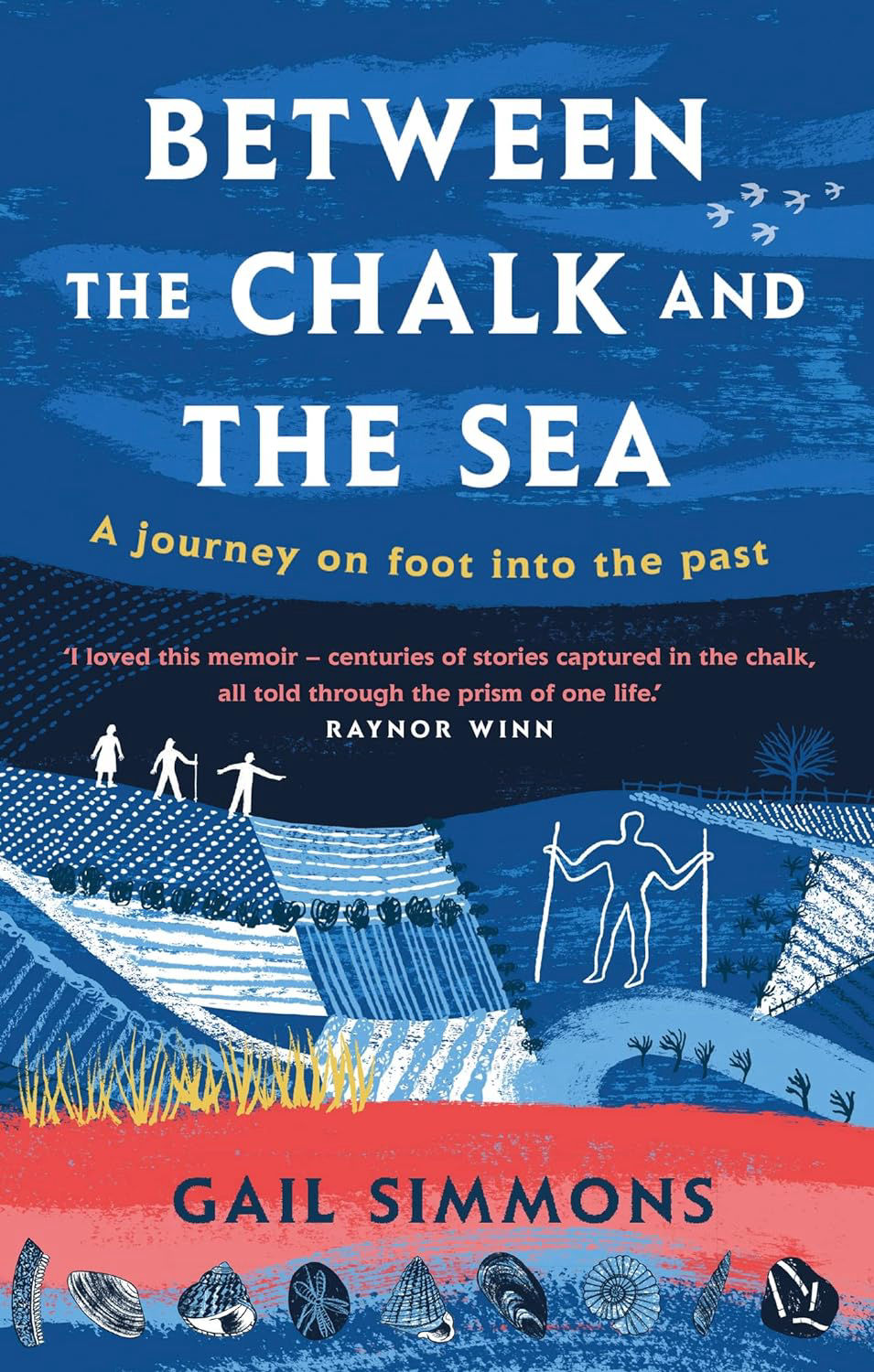
After a peripatetic army childhood, Gail Simmons settled with her family in a Chiltern village. Like most eighteen-year-olds, she couldn’t wait to leave home and spread her wings. Decades later – having worked in a Cumbrian castle, listed historic buildings in Warwickshire, led walking groups in Italy and the Middle East, and written for national newspapers – she returned to rediscover the landscape of her youth.
Gail holds an MA in medieval history and a PhD in creative writing and teaches travel writing at Bath Spa and Cambridge universities.
Between the Chalk and the Sea: a journey on foot into the past -- an old map. A lost pilgrimage route. A journey in search of our walking heritage. When Henry VIII banned pilgrimage in 1538, he ended not only a centuries-old tradition of walking as an act of faith but also a valuable chance to discover the joy of walking as an escape from the burdens of everyday life. Much was lost when these journeys faded from our collective memory, but clues to our past remain. On an antique map in Oxford’s Bodleian Library, a faint red line threading through towns and villages between Southampton and Canterbury suggests a significant, though long-forgotten, road.
Described as England’s Camino, this long-distance footpath carves through one of the nation’s most iconic landscapes – one that links prehistoric earthworks, abandoned monasteries, Saxon churches, ruined castles and historic seaports. Over four seasons, travel writer Gail Simmons walks the Old Way to rediscover what a long journey on foot offers us today. In the age of the car, what does it mean to embrace ‘slow travel’? Why does being a woman walking alone still feel like a radical act? In an age when walking connects the nation, can we now reclaim pilgrimage as a secular act? Winding 240 miles between the chalk hills and shifting seascapes of the south coast, Gail ventures deep into our past, exploring this lost path and telling a story of kings and knights, peasants and pilgrims, of ancient folklore and modern politics. Blending history, anthropology, etymology and geology, Gail’s walk along the Old Way reveals the rich natural and cultural heritage found on our own doorstep.
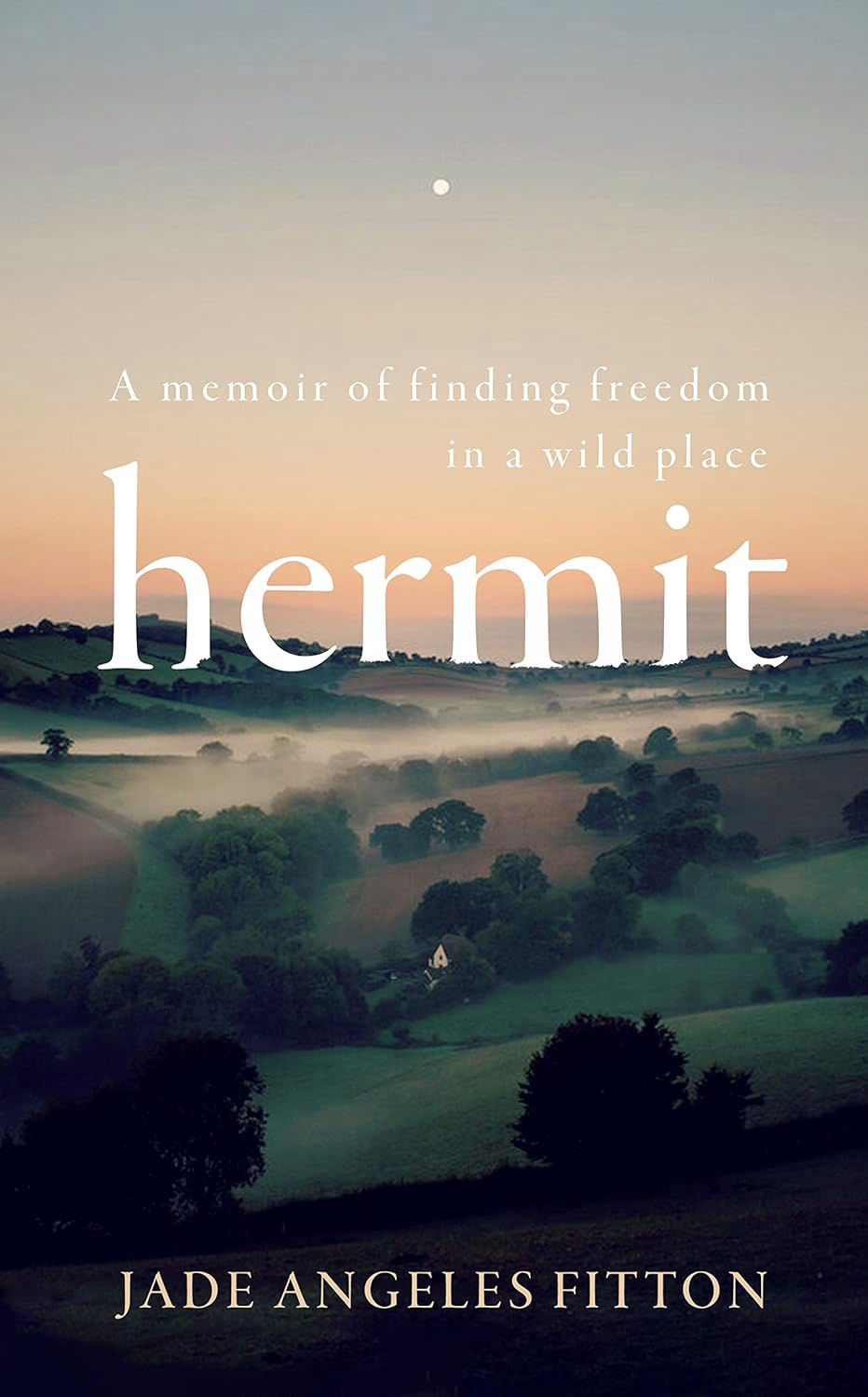
Jade is a writer, journalist, and award-winning producer. Her work has appeared in the likes of the Guardian, Independent, Vogue, Times Literary Supplement, New Statesman, Literary Review and the BBC. Her poetry has been published in a number of magazines including The Moth.
Hermit: a memoir of finding freedom in a wild place -- an inspirational story of recovery, finding a home, and celebrating solitude in the natural world. When Jade's partner leaves the barn that they moved into just weeks before, he leaves a dent in the wall, and her life unravels. Numbed from years in a destructive, abusive relationship, she faces an uncertain future and complete solitude. Slowly, with the help of Devon's salted cliffs and damp forested footpaths, Jade comes back to life and discovers the power of being alone.
As Jade reacclimatises, she considers what it means to live alone. Through conversations with other hermits across the world, Fitton sheds light on the myriad - and often misunderstood - ways of living alone, from monks to hikikomori and the largely ignored female hermit. Jade questions whether hermitic living is possible in an era of constant communication and increased housing costs as she finds herself financially unstable and itinerant. She realises that home doesn't exist within walls but within the landscape of her childhood home county.
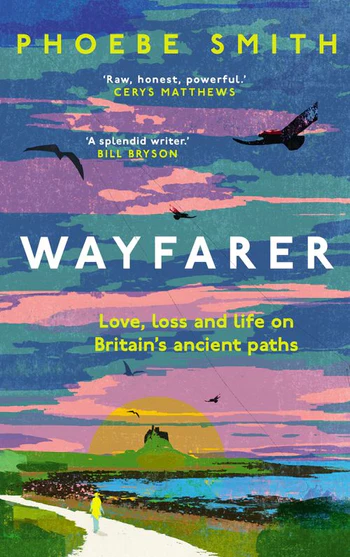
Phoebe Smith is an award-winning adventurer, presenter, broadcaster, author, photographer, and speaker. She hosts the Wander Woman Podcast and is the Sleep Storyteller-in-Residence at Calm.com. She is the author of 10 books, including the bestselling Extreme Sleeps and has worked with a range of clients from the BBC to ITV, Radio 4, the Guardian, Ordnance Survey, Duke of Edinburgh Awards, Rolls Royce, Lowe Alpine and Berghaus.
Wayfarer: Love, loss and life on Britain’s ancient paths -- A woman’s tale of the transformative power of walking Britain’s ancient pilgrim paths. On an assignment to walk the most famous pilgrimage in the world – the Camino de Santiago, in northern Spain – Phoebe Smith somehow lost her way. Having spent a lifetime exploring unfamiliar places, she quit her dream job, ended her long-term relationship and headed home to North Wales to discover the point to… everything.
In her search for answers, she found herself – quite by accident – walking some of Britain’s oldest pilgrim paths. And by following these old ways, she ended up confronting past traumas that she thought she had laid to rest. But while it follows holy trails, this is not a book about religion. From losing her mother as a teenager to surviving toxic relationships, Phoebe offers an unflinchingly honest look at her battle with an eating disorder, depression, and the pitfalls of newfound singledom. Skilfully weaving together Phoebe’s own story with those of countless travellers past and present, Wayfarer reveals how nature and place can heal past wounds, offering a pathway to salvation she’d never thought existed.
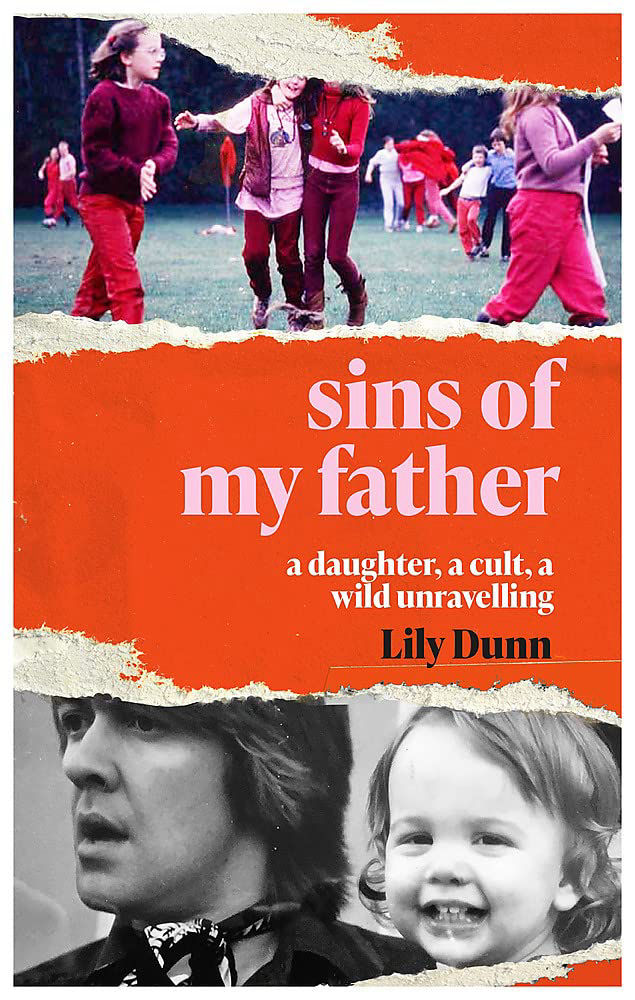
Lily is an author, mentor and academic. Her debut nonfiction, Sins of My Father: A Daughter, A Cult, A Wild Unravelling, a memoir about the legacy of her father’s addictions (W&N), was The Spectator and The Guardian Best Nonfiction Book 2022. Her forthcoming book, Into Being: The radical craft of memoir and its power to transform is due to be published by MUP in 2025. She is also the author of a work of fiction, Shadowing the Sun (Portobello Books, 2007), and co-editor of A Wild and Precious Life (Unbound, 2021), an anthology of stories on recovery from mental illness and addiction. She teaches narrative nonfiction and memoir at Bath Spa University and co-runs the London Lit Lab.
When Lily Dunn was just six years old, her father left the family home to follow his guru to India, trading domestic life for clothes dyed in oranges and reds and the promise of enlightenment with the cult of Bhagwan Shree Rajneesh. Since then, he has been a mystery to her.
She grew up enthralled by the image of him: effervescent, ambitious and elusive, a writer, publisher and entrepreneur, a man who would appear with gifts from faraway places and with whom she spent the long, hot summers of her teenage years in Italy, in the company of his wild and wealthy friends. Yet he was also a compulsive liar, a delinquent, a man who abandoned his responsibilities in a pursuit of transcendence that took him from sex addiction, via the Rajneesh cult, to a relentless chase of money, which ended in ruin and finally addiction to alcohol and prescription drugs.
A detective story that charts two colliding narratives, Sins of My Father is a daughter's attempt to unravel the mysteries of a father who believed himself to be beyond reproach. A dazzling work of literary memoir, it asks how deep legacies of shame and trauma run and if we can reconcile unconditional love with irreparable damage.
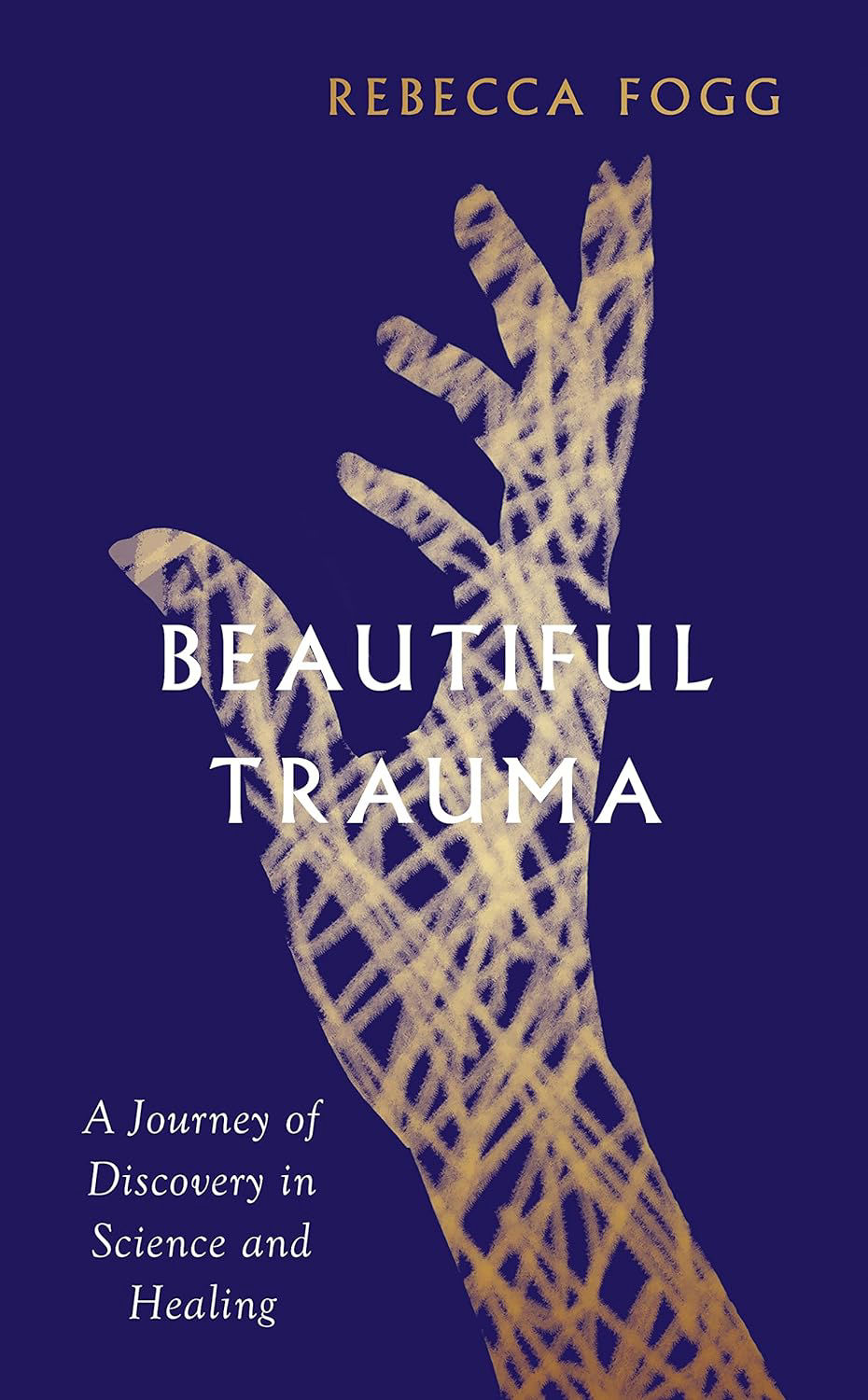
Rebecca is an American author now based in England. In 2008, Rebecca Fogg walked away from her New York life and career in financial services to move to London, where she co-founded the Institute of Pre-Hospital Care at London’s Air Ambulance and continues to work, write and learn Scottish fiddle. BEAUTIFUL TRAUMA: A JOURNEY OF DISCOVERY IN SCIENCE AND SELF is Fogg’s first book. It was awarded the 2019 Royal Society of Literature Giles St. Aubyn Judge's Special Commendation for work in progress.
Part memoir, part medical investigation, this is a compelling account of surviving a freak accident, and a fascinating exploration of the science of trauma and recovery.
Late one night, Rebecca Fogg's hand is partially amputated in an explosion in her flat. Quick thinking saves her life, but the journey to recovery is a slow one. As the doctors rebuild her hand, Rebecca (who also survived 9/11) rebuilds her sense of self by studying the physical and psychological process of recovery.
Interspersing the personal with the medical, Rebecca charts her year of rehabilitation, touching on the marvellously adaptable anatomy of the hand; how the brain's fight or flight mechanism suppresses conscious thought so we can react instantly to danger; and why trauma causes some people to develop PTSD, while giving others a whole new lease of life. Told with great emotional and intellectual clarity, Beautiful Trauma explores the resilient nature of the human spirit and the power we all hold in our hands.
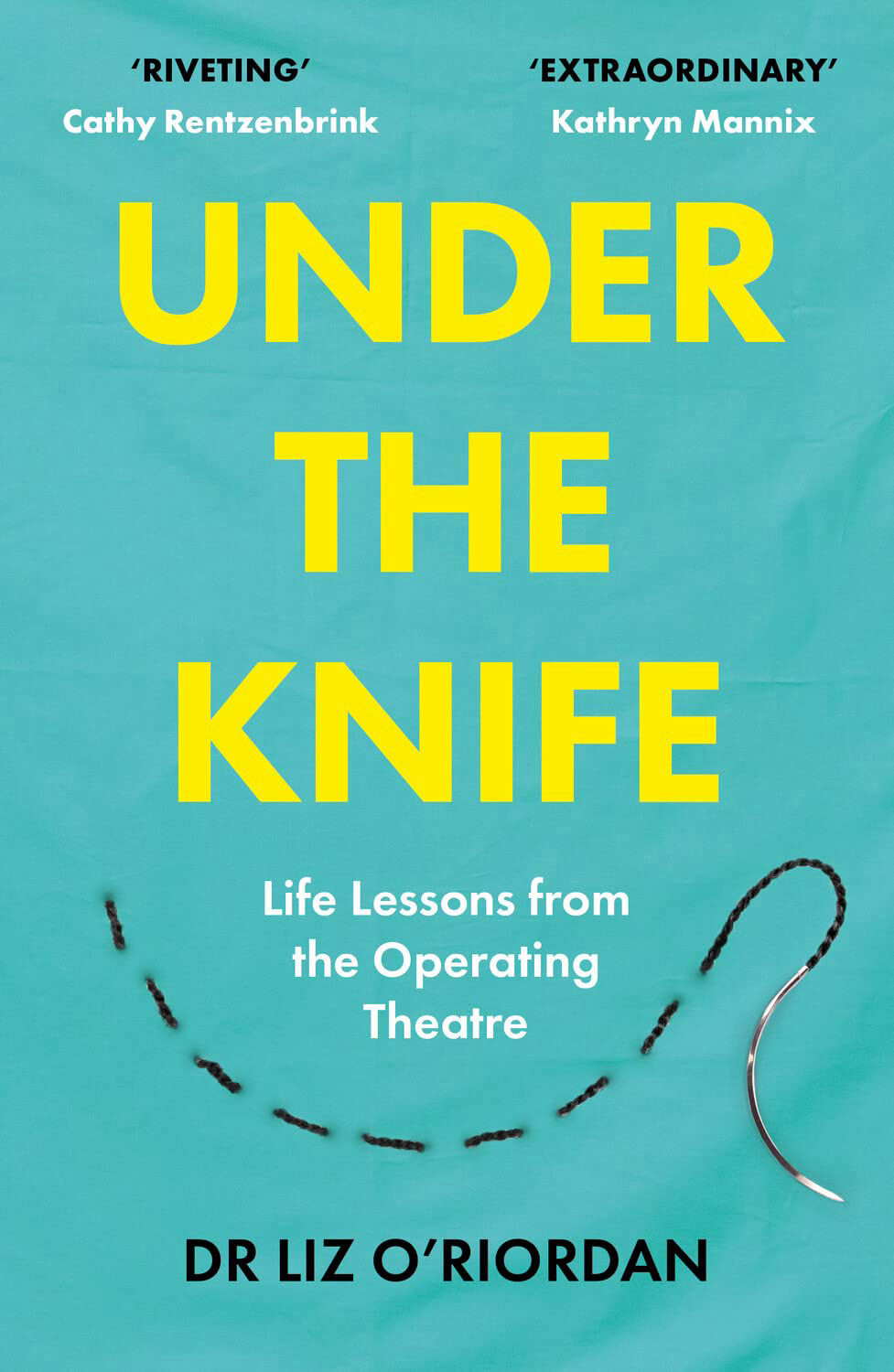
Liz was diagnosed aged 40 with breast cancer whilst working as a consultant breast surgeon. Two years later, she had a local recurrence, and the side effects of treatment forced her to retire in 2019. She now talks all over the world about how to improve patient care. She wrote ‘The Complete Guide to Breast Cancer: How to Feel Empowered and Take Control’ to carry on helping patients. Her podcast, ‘Don’t Ignore The Elephant’, talks about the things no one else does. Liz is also a keen sportswoman and is passionate about promoting the benefits of exercise for cancer patients. Turning to writing, speaking and educating online, she is now an influential and inspiring voice in breast cancer awareness, sharing her knowledge and experiences through her podcast, talks, YouTube channel, social media and writing. When asked why she decided to write her memoir, she answered: I wanted the public to know how hard it is to train to be a surgeon; I wanted to talk publicly for the first time about my suicidal depression and share what it was like to be on the other side of the operating table.
Dr Liz O’Riordan is a breast cancer surgeon who has battled against social, physical and mental challenges to practise at the top of her field. Under the Knife: Life Lessons from the Operating Theatre charts Liz’s incredible highs: performing like a couture dressmaker as she moulded and reshaped women’s breasts while saving their lives, to the heart-breaking lows of telling ten women a day that they had cancer.
But this memoir is more than just an eye-opening look at the realities of training to be a female surgeon in a man’s world. In addition to this high-powered, high-pressured role, Liz faced her own breast cancer diagnosis, severe depression and suicidal thoughts in tandem with commonplace sexual harassment and bullying. And by revealing how she coped when her life crashed around her, she demonstrates there is always hope.
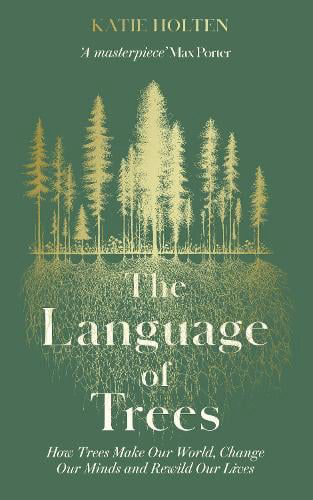
Katie Holten is an artist and activist, born in Ireland and living in New York City and Ardee, Ireland. In 2003, she represented Ireland at the Venice Biennale. She has had solo exhibitions at the Bronx Museum of the Arts, the New Orleans Museum of Art, the Contemporary Art Museum St. Louis, and Dublin City Gallery: The Hugh Lane. Her drawings investigate the entangled relationships between humans and the natural world.
She has created Tree Alphabets, a Stone Alphabet, and a Wildflower Alphabet to share the joy she finds in her love of the more-than-human world. Her work has appeared in the Irish Times, New York Times, Artforum, and frieze. She is a visiting lecturer at the New School of the Anthropocene. If she could be a tree, she would be an Oak.
The Language of Trees: How Trees Make Our World, Change Our Minds and Rewild Our Lives is a stunning international collaboration that reveals how trees make our world, change our minds and rewild our lives – from root to branch to seed.
In this beautifully illustrated collection, artist Katie Holten gifts readers her visual Tree Alphabet and uses it to masterfully translate and illuminate pieces from some of the world’s most exciting writers, artists, activists and ecologists.
SHORTLISTED FOR THE 2023 BRITISH BOOK DESIGN & PRODUCTION AWARDS* and an IRISH TIMES BESTSELLER
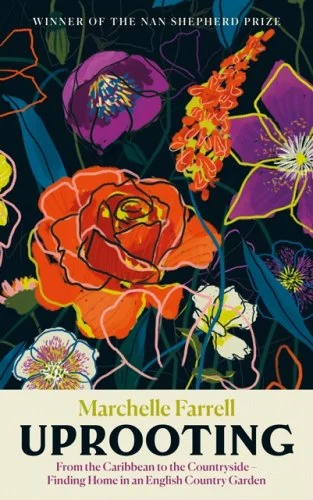
Marchelle Farrell is a therapist, writer and amateur gardener. Born in Trinidad and Tobago, she has spent the last twenty years attempting to become hardy in the UK. She has trained and worked as a consultant psychiatrist and psychotherapist. When not neglecting it for the care of her young children, or her work in the community, Marchelle spends much of her time getting to know her country garden in Somerset and writing about the things the garden teaches her about herself. Her debut Uprooting won the Nan Shepherd Prize.
Uprooting: From the Caribbean to the Countryside -- Finding Home in an English Country Garden
WINNER OF THE 2021 NAN SHEPHERD PRIZE FOR NATURE WRITING
What is home? It’s a question that has troubled Marchelle Farrell for her entire life. A longed-for career in psychiatry saw her leave behind the pristine beaches and emerald hills of Trinidad. Until, disillusioned, she uprooted again, this time for the peaceful English countryside.
The only Black woman in her village, Marchelle hopes to grow a new life. But when a worldwide pandemic and a global racial reckoning collide, the upheaval of colonialism that has led her to this place begins to be unearthed. Is this really home? And can she ever feel truly grounded here?
Full of hope and healing, Uprooting is a book about finding home where we least expect it, and which invites us to reconnect to the land – and ourselves.
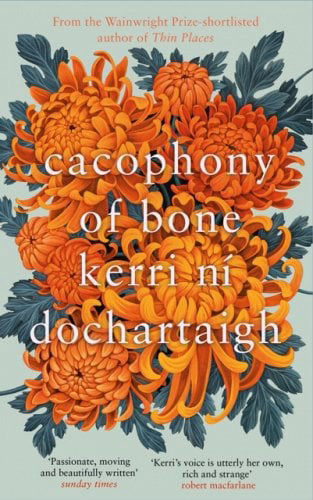
Kerri ní Dochartaigh is a mother and writer from the north-west of Ireland, now living in Clare with her family. She writes about nature, literature and place for the Guardian, Irish Times, the BBC and others. Her first book, Thin Places, was published in spring 2021, for which she was awarded the Butler Literary Award 2022, and highly commended for the Wainwright Prize for Nature Writing 2021. Cacophony of Bone is her second book.
Cacophony of Bone maps the circle of a year – a journey from one place to another, field notes of a life – from one winter to the next. It is a telling of a changed life, in a changed world – and it is about all that does not change. All that which simply keeps on – living and breathing, nesting and dying – in spite of it all. When the pandemic came time seemed to shapeshift, so this is also a book about time. It is, too, a book about home, and what that can mean. Fragmentary in subject and form, fluid of language, this is an ode to a year, a place, and a love, that changed a life.
LONGLISTED FOR THE WAINWRIGHT PRIZE FOR NATURE WRITING
A WATERSTONES' BEST BOOK OF 2023: NATURE AND TRAVEL
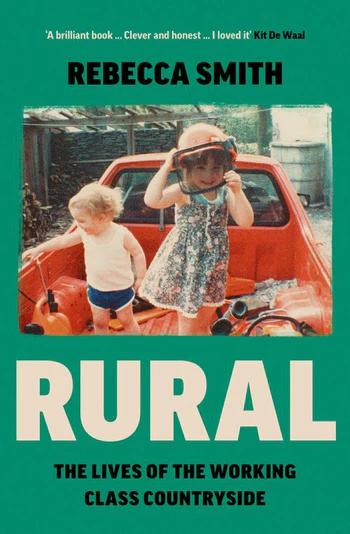
Rebecca Smith is a non-fiction writer from Cumbria currently based in Central Scotland. Her first book, Rural: The Lives of the Working-Class Countryside is for anyone who loves and longs for the countryside, whose family owes something to a bygone trade, or who is interested in the future of rural Britain. Starting with Rebecca Smith's own family history - foresters in Cumbria, miners in Derbyshire, millworkers in Nottinghamshire, builders of reservoirs and the Manchester Ship Canal - Rural is an exploration of our green and pleasant land, and the people whose labour has shaped it. Beautifully observed, these are the stories of professions and communities that often go overlooked.
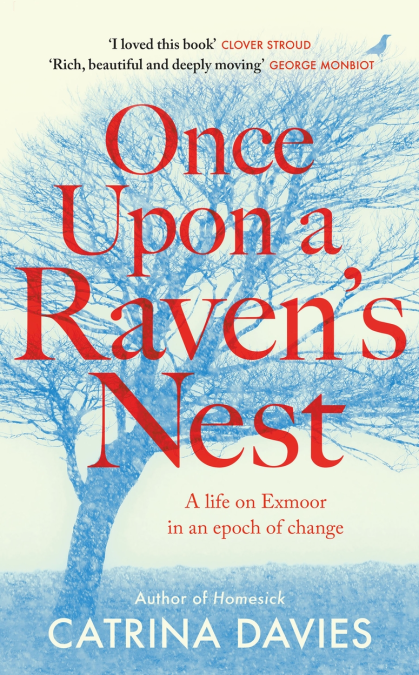
Catrina Davies is the author of three books: Fearless (2014), Homesick (2019) and Once Upon a Raven’s Nest (2023). She was born in Snowdonia and grew up in the far west of Cornwall, where she still lives, in various sheds. Homesick was longlisted for the Baillie Gifford prize and won a Holyer an Gof award. Her latest book, Once Upon a Raven’s Nest: A life on Exmoor in an epoch of change is the story of a working class man, one Thomas Hedley of Exmoor, and of the planet during the period of its great acceleration towards the current climate emergency. An unforgettable history of a life that is almost lost and an account of the destruction man has wrought on the earth in the time that Hedley worked the land, the narrative is interwoven with a sequence of factual entries that chart the impending climate catastrophe and the consequences of our collective choices to ignore the warning of an environment on the verge of collapse.
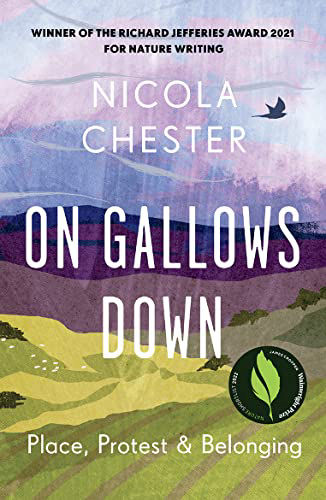
Nicola Chester is an activist for nature, and has been called an ‘early, female pioneer of the new nature writing’ (Dominic Couzens). She has written for BBC Wildlife Magazine, Caught By The River, The Clearing, Country Living, The Telegraph, The Financial Times, Slightly Foxed and The Wildlife Trusts. Her debut award-winning memoir, On Gallows Down: Place, Protest and Belonging was Highly Commended in the Wainwright Prize for Nature Writing, 2022, winner of the 2021 Richard Jefferies Prize for Nature Writing, and selected for Stephen Moss’s, Melissa Harrison’s and Countryfile Magazine’s ‘Best Books of 2021’. It is the story of a life shaped by landscape. From the girl catching the eye of the “peace women” of Greenham Common to the young woman protesting the loss of ancient and beloved trees, and as a mother raising a family in a tied-farm cottage in the shadow of grand, country estates, this is the story of how Nicola Chester came to write – as a means of protest. A powerful, personal story shaped by a landscape; one that ripples and undulates with protest, change, hope – and the search for home.

WILD WOMEN PRESS
CONTACTS
Email: vik@wildwomenpress.com